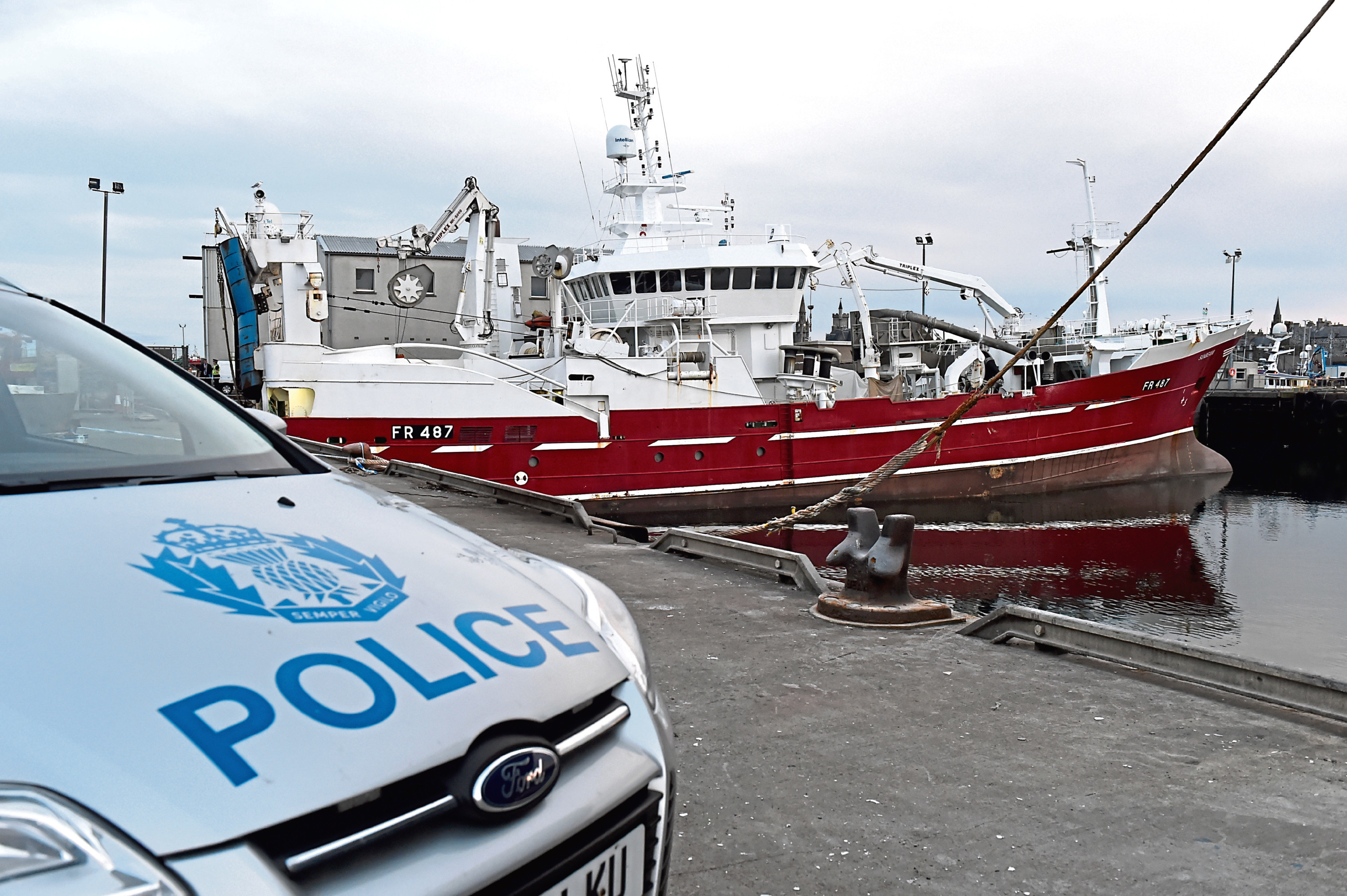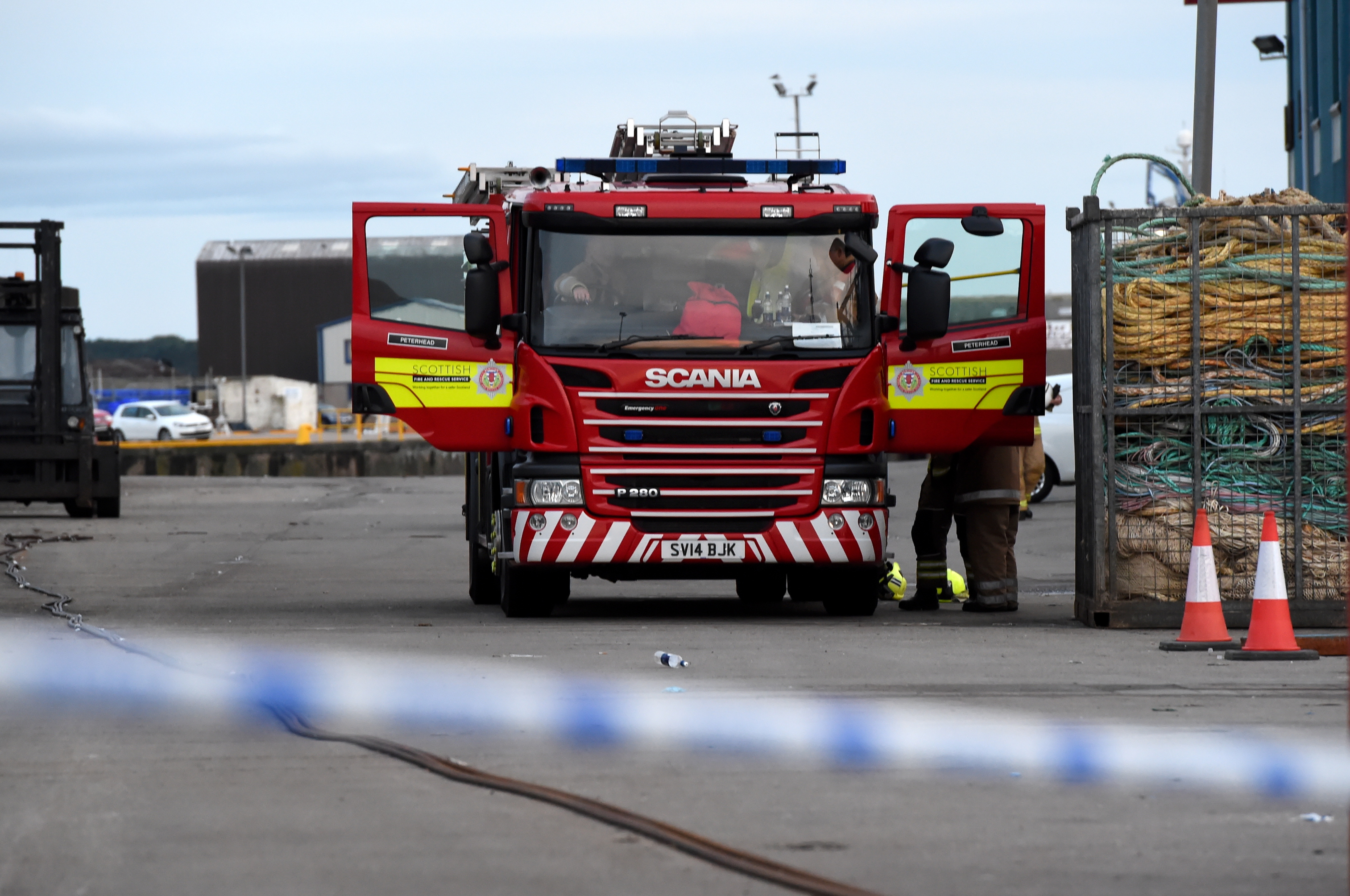Low oxygen levels and toxic refrigeration gas contributed to the death of a north-east fisherman and could have claimed the lives of his crewmates, a new report has revealed.
William Ironside died on board the Sunbeam while it was docked in Fraserburgh Harbour in August, prompting a major incident response.
He was overcome by fumes as he cleaned a refrigerated storage tank on the vessel’s return to port following a successful fishing outing off Orkney.
And an initial report by the Marine Accident Investigation Branch (MAIB) has revealed three crewmates who rushed to his aid became “confused, dizzy and short of breath”.
Two are said to have collapsed and had to be dragged to safety by other crewmen who had donned breathing apparatus, such was the toxicity of the environment on board the trawler.
Though a full investigation has yet to be completed, investigators have already told the owners of the vessel they must improve safety procedures.
>> Keep up to date with the latest news with The P&J newsletter
Officials have urged boat bosses to carry out risk assessments for entering and working in refrigerated sea water (RSW) tanks and provide safe operating procedures.
They also recommend using the appropriate level of safety equipment like atmosphere testing, a safety harness and breathing apparatus for rescue teams.
The MAIB report said their findings highlighted the dangers of working in enclosed spaces and indicated crew had underestimated the dangers.
It said: “This was a tragic accident, which nearly resulted in multiple fatalities.
“The crew did not appreciate the levels of risk they were taking, even after the second engineer had collapsed.”
Last night, a spokesman for Sunbeam Fishing Ltd issued a brief statement, saying: “Our thoughts remain with the family of our valued colleague and friend, William Ironside, who was tragically lost on August 14, 2018.
“We are fully cooperating and assisting the MAIB throughout the inquiry process, however, as this investigation is ongoing it would not be appropriate for us to comment further at this time.”
In its initial report, the maritime safety watchdog said tests of the atmosphere in the RSW tank where the men had been showed that the level of oxygen in the bottom was less than 6%. The normal level should by 20.9%

A toxic gas associated with refrigeration was also detected in the tank.
The report said Sunbeam has nine of the tanks so it could store its catch and said the crew had just returned from an outing to Orkney and were preparing to clean the equipment.
A large area of Fraserburgh Harbour was cordoned-off in August as investigations into the incident began.
Collapsed while cleaning
The MAIB report reveals Mr Ironside entered the aft centre of the RSW tank to begin cleaning but collapsed within moments.
Though medical teams and other emergency services were swiftly on the scene, the 52-year-old was pronounced dead soon thereafter.
The colleagues who rushed to his aid, only to be overcome by the fumes themselves, were all taken to hospital but later released.
Officials said: “At about 1.50pm, the second engineer was seen lying unconscious at the aft end of the tank by a crewmate, who immediately raised the alarm.
“Three of the vessel’s crew entered the tank and tried to resuscitate the second engineer but they soon became dizzy, confused and short of breath.
“One of the crew managed to climb out of the tank unaided, the other two crewmen and the second engineer were recovered onto the open deck by two crewmen wearing breathing apparatus.
“The two crewmen made a full recovery, but the second engineer could not be resuscitated and died.”

The MAIB said it later emerged Mr Ironside had entered the tank to sweep out residual seawater, but no safety procedures had been completed.
Tests found the oxygen levels were low and there was a toxic gas called Freon R22 present in the atmosphere.
The report notes: “Freon R22 is four times heavier than air so it will displace oxygen at the bottom of an enclosed space, such as an RSW tank.
“It is a toxic, tasteless and mostly odourless gas. If it is deeply inhaled, it can cut off vital oxygen to blood cells and lungs.”
The MAIB will publish a full report once their probe is complete.